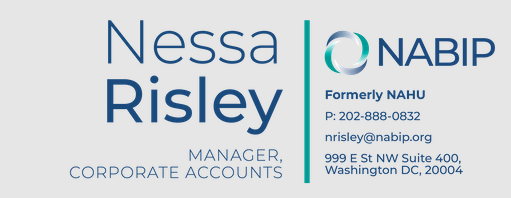Agent Boost Agent Do’s and Don’ts.

Written by Mike Hardle
VP of Sales & Licensed Life and Health Agent
Jan. 18, 2022 5 min. read
IMPORTANT:
In order to receive compensation for sale of Medicare products, you are required to be licensed, trained and registered by each carrier you wish to represent. You will be notified by the Agent Boost when you are ready to sell with each carrier.
Not Contracted with Agent Boost? You’re just a few steps away from getting ready to sell.
Agents and brokers may not engage in activities which have the potential to mislead, confuse or misrepresent Medicare products. When selling Medicare products, you must comply with all state licensure laws, as well as all applicable MA and Part D laws, CMS policies, including CMS marketing guidelines, and all federal health care laws (including civil monetary penalty laws). The list below highlights certain prohibited activities that agents and brokers may not engage in.
It can be difficult as you begin to work in the Medicare industry to know what you can and cannot do. This is intended to be a guardrail, but not all inclusive of all Medicare guidelines.
Among other requirements, agents and brokers:
- May not claim recommendation or endorsement by the Centers for Medicare & Medicaid Services (CMS) or that CMS recommends that Medicare beneficiaries enroll in the plan;
- May not make any statement, claim, or promise that conflicts with, materially alters, or erroneously expands upon the information contained in CMS-approved materials;
- May not use providers or provider groups to distribute printed information comparing benefits of different health plans, unless the materials have the concurrence of all Medicare Advantage Organizations’ (MAO’s) involved and unless the materials have received prior approval from CMS;
- May not accept enrollee applications in provider offices or other places where health care is delivered. Sales presentations may be conducted and enrollment applications may be distributed and collected only in common areas of a health care setting, away from where care is delivered;
- May not offer gifts or payment as an inducement to enroll in Medicare product;
- May not engage in any discriminatory marketing practice, such as attempting to enroll Medicare beneficiaries from higher income areas, without a similar effort in lower income areas;
- May not discriminate based on race, ethnicity, national origin, gender, sex, age, mental or physical disability, health status, receipt of healthcare, claims experience, medical history, genetic information, evidence of insurability, or geographic location.
- May not conduct door-to-door solicitation of Medicare beneficiaries;
- May send e-mails to a Medicare beneficiary, however, the email must have an opt-out in order to remain compliant. Additionally it cannot steer a recipient into choosing or retaining a specific plan. It should simply offer a service to review plans.
- Must comply with the National-Do-Not-Call Registry, as well as applicable state telemarketing “Do Not Call” regulations, honor “do not call again” requests, and abide by Federal and State calling hours.
- May not make unsolicited calls to a beneficiary to discuss Medicare products. You must be able to produce a compliant permission to contact in the case of any complaint. Cold calling or texting or other forms of electronic direct messaging (e.g. Social media platforms) is strictly prohibited.
- Permission to contact must clearly clarify that the consumer is agreeing to have a licensed sales agent contact them regarding Medicare products.
- May only present plan options according to the scope of appointment that is gained. Additionally, only health based products are allowed to be presented at the same time as a Medicare product. Under no circumstance should an agent present a life insurance or annuity product during the same appointment as a Medicare plan.
- May not take advantage of a Medicare lead to sell other insurance products to a Medicare beneficiary for which the beneficiary may not be suited, to the extent such activity would violate state licensure laws.
- Use of senior-specific designations: You are responsible for ensuring compliance with state laws pertaining to the use of “senior-specific designations” when marketing Medicare products. For example, in New York, a senior-specific designation is a title, professional designation, credential, certification, or professional description that indicates the person has expertise or training in issues specifically related to seniors in their field. If you do not know whether you are in full compliance with state laws concerning the use of senior-specific designations, do not use such designation in marketing Medicare products.
- Agents may not refer to themselves as a Medicare expert unless followed by licensed sales agent.
- Agents may not utilize scare or high-pressure tactics that create undue fear or anxiety in beneficiaries to induce enrollment.
- When marketing agents may only discuss plans for the upcoming plan year beginning on October 1st of each year.
- Agents may not advertise the Medicare Advantage Open Enrollment period.
- Any agent produced marketing must be reviewed an approved by compliance prior to utilizing.
- If conducting business remotely, the sales call and enrollment call must be recorded in their entirety and enrollments must be completed on an inbound call with few exceptions.
For License and Appointment questions, please call (855) 378-1451or email [email protected]. For Compliance questions or concerns email [email protected]
Table of Contents
Subscribe to our Newsletter
Receive important updates as they are released

Ready to start now?
Dial to 855-378-1451 and learn more today!
Powered by Agent Boost Marketing
© Copyright 2024 Agent Boost. All rights reserved. The information on this website is for agent use only and not intended for use by the general public.


